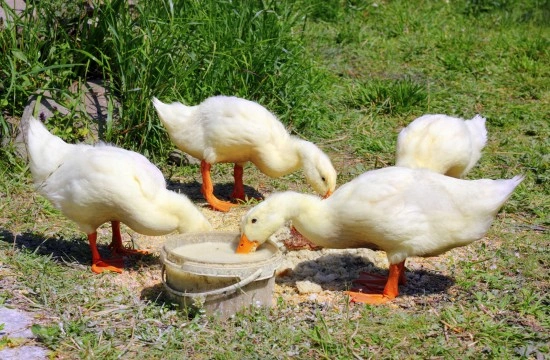Pets
Pets for studWanted petsBreedersAccessories & services
Knowledge hub
Support
Support & safety portal
The Importance of Worming Ducks
Ducks need to be wormed on a regular basis just like any other poultry or waterfowl and luckily, this is very easily be done. All that worming ducks involves is mixing a given quantity of a product in with a bird's normal feed. By treating your ducks at least twice a year, you effectively avoid many health issues developing in your flock of ducks simply because it helps keep them strong and healthy.
How Do Ducks Get Worms in the First Place?
Ducks being ducks love burrowing in wet ground to find all those earthworms they enjoy eating so much. However, it is these earthworms which are the intermediate hosts, they are the culprits that carry the nasty parasitic internal worm eggs that cause ducks so much damage.
The Best Time to Worm Your Ducks
The best time to worm your ducks is typically just after they have stopped breeding and then again before they start laying which is in the autumn and then again in the spring. If you think your ducks might be carrying a lot of worms – it may be worth repeating the process and treating your birds twice in the spring time leaving an interval of 3 weeks between the treatments.
Symptoms and Signs Your Ducks have Worms
- Ducks are often lame or go off their legs"" when they have worms
- They don't carry the right weight and often they are very underweight
- Ducks with gapeworm will cough excessively
- Head shaking
- A drop in egg production
- You can see worms in their droppings – these are often roundworms
- There may be blood in their droppings and around their vents
The Damage Worms can Cause Ducks
An infestation of worms will cause a lot of damage to a duck's digestive system and all too often, if left untreated it can prove fatal. It also means that your flock will consume far more feed, lay far fewer eggs and lose a lot of condition and weight to boot. The other condition an infestation may cause is called an impaction where there's a blockage that prevents their digestive systems from working properly and again this can be fatal.
Another serious consideration is that if a duck is carrying loads of worms and they are treated, the toxins the worms release into a duck's system as they die can and will kill birds which all adds up to how important it is to regularly worm your ducks and this needs to be at least twice a year.
Free Range Ducks are More at Risk
Research shows that ducks that roam freely around carry heavier worm loads than birds that are kept in a controlled, indoor environment. The most classic sign of them suffering from internal worms is they literally go off their legs or appear lame. Other ducks in the flock will pick up the worms when they eat them by accidentally picking up an infected birds droppings and thus the cycle continues.
The Importance of Good Management
In order to get internal worms under control it is really important to break the cycle and this can only be done through good management. Ground needs to be rested whenever possible and grass needs to be kept nice and short which helps kill off any internal worm eggs found in a ducks droppings – sunlight will do this very effectively. If you think your ducks are carrying loads of internal worms then you might need to treat your birds a second time in the spring making sure you leave an interval of 3 weeks between treatments.
The Products Available in the UK
Although there are no specific worming products licensed for use on ducks – the ones which are typically used to treat them and which vets often recommend are as follows:
- Flubenvet
- Ivermectin
- Verm-X
The Type of Internal Worms that Affect Ducks
There are various types of internal worms that affect ducks all of which can cause a lot of damage to their digestive systems and other organs. These are as follows:
- Round worms – these are the ones you are most likely to find in droppings and which are more obvious to the naked eye
- Gape worm – these are found in a duck's trachea as well as their lungs and a typical sign there could be a problem is when you see ducks shaking their heads and hearing them coughing
- Tape worms – these are found in their intestines and although ducks don't normally catch them it is worth treating them anyway
- Gizzard worm – these are found in the gizzard and are more commonly found in geese although ducks too can catch them
- Caecal worms – these are found in a duck's Caecal tubes
Conclusion
Making sure your ducks are routinely wormed at least twice a year ensures your birds stay nice and healthy. A worm infestation can prove fatal to ducks or at the very least cause them to be lame or go off their legs which is a sure sign there may be a worm problem. The sooner you treat your birds the better and if you have any doubts, you should discuss things with your local vet who will recommend the best product to use on your ducks.
""



